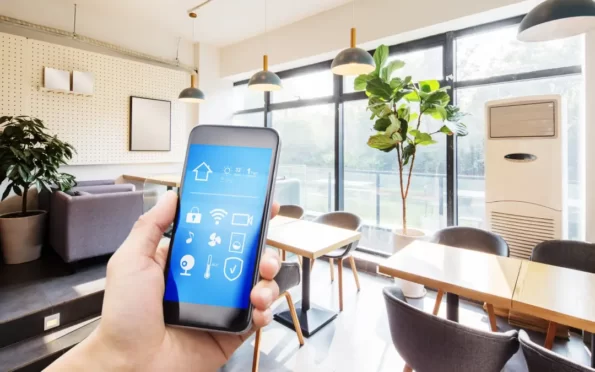In today's rapidly evolving technological landscape, the concept of a 'smart home' is no longer a distant dream but a reality that many homeowners and businesses are embracing. With the advent of smart technology, homes are becoming more interconnected and efficient, offering a plethora of conveniences. However, one aspect that often goes unnoticed is how smart homes affect insurance rates. This topic is particularly relevant for homeowners and businesses looking to understand the financial implications of integrating smart technologies into their living and working spaces.

Understanding Smart Homes
A smart home is equipped with advanced automation systems that enable remote control of various household functions like lighting, temperature, security, and entertainment systems. These homes use internet-connected devices to manage and monitor the environment efficiently. With the increased reliance on technology, the question arises: how do these smart features impact insurance rates?
The Impact on Insurance Rates
Insurance companies are increasingly acknowledging the advantages of smart homes, primarily because they can help mitigate risks. For instance, smart security systems can deter burglaries, and smart smoke detectors can promptly alert homeowners of potential fire hazards. Consequently, insurers might offer reduced premiums to homeowners who have installed these smart features.
However, the extent to which smart homes affect insurance rates depends on various factors, such as the type of technology used and the coverage policies of individual insurance companies. It is essential for homeowners and businesses to consult with their insurers to understand the potential discounts or changes in rates associated with their smart home technologies.
Key Technologies Influencing Insurance Rates
Smart Security Systems
Smart security systems are among the most significant contributors to reduced insurance rates. These systems, which include smart locks, surveillance cameras, and motion detectors, provide enhanced security and lower the risk of burglary. According to industry experts, homes with advanced security systems are less likely to be targeted by burglars, which can lead to a decrease in insurance premiums.
Smart Fire and Smoke Detectors
Fire hazards are a primary concern for insurers. Smart fire and smoke detectors offer real-time alerts and can even contact emergency services automatically. This rapid response capability reduces the damage caused by fires, which in turn can lower insurance claims and premiums.
Water Leak Detectors
Water damage is another significant concern for insurers. Smart water leak detectors can identify leaks early and notify homeowners, helping to prevent extensive water damage. By minimizing water-related incidents, these devices can lead to lower insurance rates.
Challenges and Considerations
While the benefits of smart homes are clear, there are also challenges to consider. For instance, the reliance on internet connectivity makes smart homes vulnerable to cyber-attacks. Homeowners need to ensure that their devices are secure and updated regularly to protect against breaches. Additionally, the initial investment for smart technology can be high, and not all insurance companies offer discounts for smart home features.
For more information on making your home smart, check out this comprehensive guide.
Conclusion: A Smart Investment?
In conclusion, the integration of smart technologies in homes offers numerous benefits, including the potential to reduce insurance rates. By understanding how smart homes affect insurance rates, homeowners and businesses can make informed decisions about investing in smart technology. While there are upfront costs and challenges to consider, the long-term savings and enhanced security make it a worthwhile investment for many.
Those interested in learning more about smart home technologies and their implications can explore related topics, such as smart dishwashers and smart mops.

FAQ Section
Do all insurance companies offer discounts for smart homes?
No, not all insurance companies provide discounts for smart homes. It varies by provider and policy. It's best to consult with your insurer to see what options are available.
Can smart homes be hacked?
While smart homes offer many benefits, they are also susceptible to hacking if not properly secured. Regular updates and strong passwords can help mitigate this risk.
Are smart home devices expensive?
Smart home devices can range in price. While the initial investment might be high, the long-term savings on insurance and energy costs can offset the initial expenditure.

